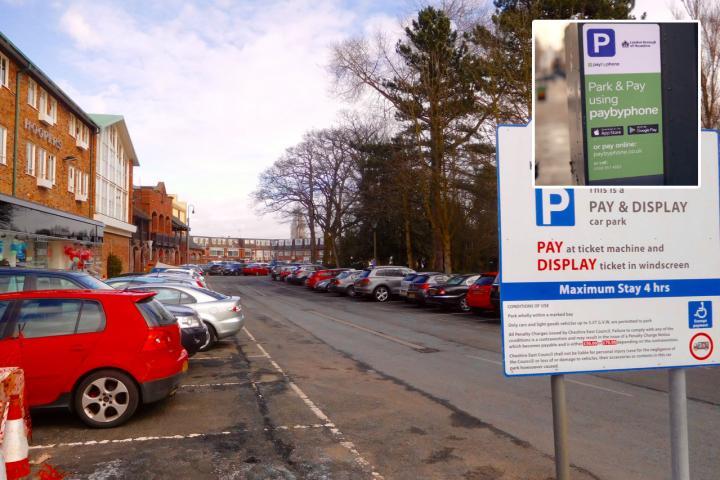
Cheshire East Council is advising customers using its car parks across the borough not to use the PayByPhone service at the present time.
A spokesperson from Cheshire East Council said "The council has been informed by the operator that some customers may experience issues with transactions while banks and payment services providers deal with some issues affecting their services.
"Until the current issue is resolved, customers are advised to use cash, credit, or debit card. It is hoped that the PayByPhone service will be fully restored as soon as possible.
"PayByPhone have informed the council that they have become aware of a 'significant number' of transactions being declined as app providers and merchant banks carry out improvements to their systems.
"The problem is not confined to PayByPhone but other digital vendors too."


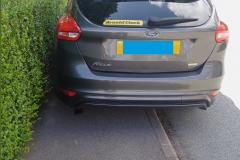


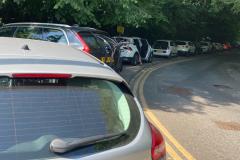
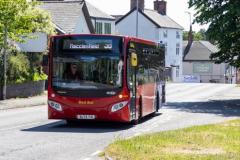


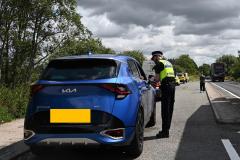
Comments
Here's what readers have had to say so far. Why not add your thoughts below.
When Putin disables the Internet and nothing works - TV, Netflix, Facebook, mobile phones, contacless cards, electric cars, Amazon etc we will have to rely on CASH - so use it more now to get some practice!
Reliance on the internet for emergency services communications could be problematic in the event of a major interruption to our electric supply, as was demonstrated recently during storm Arwen, where some people were literally cut off from help for a numbers of days.
For homes that have moved over to FTTP, data transmission is optical and obviously relies on some power to generate the signal. Telcos offer battery backup for vulnerable customers who cannot use mobiles for these scenarios.
Apart from the lower cost to serve, one of the big advantages of FTTP is that it is more reliable that the copper-based lines, it increases your chance of being able to make calls the vast majority of the time when there isn't a power cut.
For landline lovers it has always been sound [pun intended] advice to have a simple corded phone that you can connect at your master socket and so still have a useable phone if there is a power failure and use the power from the phone line. Not sure if this is still correct when we have fibre optics but might still be true. OR you can have a cordless phone system in your house that has the base station as a corded phone connected at the master socket and so have a better specification phone for use in case of power failure. Here’s an example at the link:
https://www.panasonic.com/uk/consumer/home-phones/home-office-phone/kx-tgf320e.html
As it happens I’m just thinking of upgrading my house phone system as my old Panasonic DECT cordless phone is sadly a bit past it now. For those of the many Wilmslow/Alderley residents in large mansions - with a handset in each room - it has various useful features such as intercom from handset to handset so you can speak with any handset individually or call them all to say ‘dinners ready’ instead of ringing a bell or shouting at the top of your voice. Other similar phone systems are available - this is the one I am perhaps considering.
I think the "ripping out" of copper phone wires is from the exchange as far as the little green box at the end of your street. From there to your master socket is still going to be the existing copper wire. Would anyone in the know like to clarify and educate us all on this please and how we are fixed/unfixed for future power failure scenarios?
ANYHOW - why were all our pavements dug up YEARS ago and a small plastic triangular socket left by the end of our boundary? I thought this was for the FUTURE when we would ALL get our TV [NO unsightly roof-top aerial that falls down in a gale needed] & phone stuff down a fibre-optic cable right to our front doors and so be really streaks ahead of the rest of the world in the technology & communications race?
Or was this just another 'off the cuff' statement by our politicians of the time [when was that anyone?] just to make us all believe they had our future "under control" and so deserved our votes!
On the copper line, the non-cordless phone is powered by the electricity coming down the copper line. A full fibre line does't use electricity to transmit the data - it uses light. So something needs power to generate that light. This is where as I said above there are routers that have a battery backup do allow calls to be made (in full fibre the phone is connected to the router, not the the port on the wall).
"I think the "ripping out" of copper phone wires is from the exchange as far as the little green box at the end of your street. From there to your master socket is still going to be the existing copper wire."
This is not correct. When we move to full FTTP, there will be a fibre cable from the exchange to the cabinet, and then a fibre connection from the cabinet to your home. However, many people will have an intermediate step. Currently, your data and voice services are carried out of your house separately. Openreach will effectively remove the voice part (which allows them to massively simply their estate, reduce costs and get rid of a lot of aging parts that go wrong) and the voice calls will be carried over your data service in what is called IP voice.
"ANYHOW - why were all our pavements dug up YEARS ago and a small plastic triangular socket left by the end of our boundary?"
Without knowing exactly where you live, this was probably Virgin Media (or one of their predecessors) and is unlikely to be full fibre - more likely copper coax which will give higher speeds than your copper Openreach line but not as high as fibre and not as reliable. Nothing to do with the government or Openreach.
But you are essentially right... as we move to FTTP data, voice and TV will all be down the same cable (although TV is really just a type of data). For many people this is already a reality, even on FTTC speeds, as fewer and fewer people watch linear broadcast TV. The cables will be in either underground ducts or on overhead polls, depending on where you live.
This being the case, you will not be reliant on a mobile phone signal to make calls from home. Calls will be made over the new FTTP link either from a house phone plugged directly into that link using VOIP (Voice over Internet Protocol), or from a mobile phone at home using 'WIFI calling' (communicating via your domestic WIFI router).
The only downside is that the FTTP system will rely on mains power being available in your house, so will not operate during a power cut. The present analogue phone system is powered by batteries at the telephone exchange so operates independently of mains power in the home.